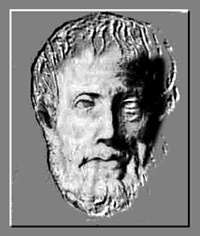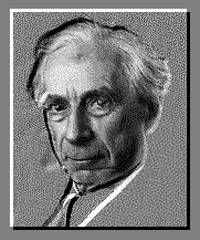|

1. "Just take it, don't question!"
|
|
II. "I can't prove it with 100% certainty, therefore I don't believe it."
On the other polar, some philosophers such as logical positivists and linguistic analysts rejected notions that cannot be proved empirically.
- Logical positivism is not proven: The statements that "every proposition to be believed must be proved " or "a meaningful statement is a verifiable statement" are not proved. Bertrand Russell, the well-known atheist positivist, asserted that mathematics can be proven sufficiently because mathematics relies on logics. And logics persist even if the human race faces extinction (how can he prove it? It sounds like a religious faith). But it is generally agreed that Russell's idea was overthrown by mathematician Curt Godel.
- We always exercise faith and make 100 % commitment:There is virtually nothing of which we can be 100% sure. Every day we exercise our faith to a great extent (e.g., we consult a doctor without seeing his license; we drive a car without checking the engine). Yet, we often make 100% commitments with less than 100% proof. e.g., flying on an airplane. We cannot be 100% certain that we will have a safe journey, but the statistical evidence is strong enough to convince us that we will. Thus, though we may not have 100% certainty of arriving safely, when we step on the plane we make a 100% commitment! So the question becomes: Is there enough evidence or proof to warrant making a 100% commitment to Christ?
III. Faith and reason go together but faith precedes reason
The middle position of the above polarity is that Christian faith is intelligent and rational. Our heart and our mind should be consistent and they should both grow together.
- A strong and healthy faith involves both mind and heart : God expects us to use our minds ( Mt 22:36-38; Jn 8:32). Even Bible authors conduct extensive research (Luke 1: 3-4). A "weak faith" may be the result of the heart trying to believe in something the mind cannot accept. But the "strong faith" God requires involves both the mind and the heart. As apologist Paul Little said, "We cannot pander to a man's intellectual arrogance, but we must cater to his intellectual integrity." In other words, spirituality and rationality are not mutually exclusive. A strong Christian should grow in both dimensions!
- Uncertainty makes life worth living : If we can prove or see every aspect of something, we don't need faith at all. This kind of so-called "belief" is simply to accept the fact. Without 100 percent certainty our action requires wise judgment, courage, trust and hope. And these make life worth living! (Hebrews 11:1-3).
- Faith precedes reason : Do not misunderstand that the balance of faith and reason implies that they are equally important. In the Old Testament the word "faith" appears only twice, but in the New Testament it occurs almost 500 times. In the NT, faith becomes supreme of all human acts and experiences. One of the Fathers St. Augustine believed that faith is a gift of God, not the initiative of men. He said, "Faith seeks, understanding finds...unless you believe, you will not understand." St. Anselm also said, "Faith precedes reason."
Recommended Further Reading
Morris, T. V. (Ed.) (1994). God and the philosophers: The reconciliation of faith and reason. New York: Oxford University Press.
Lane, T. (1984). The Lion Book of Christian Thought. Oxford: A Lion Paperback.
 Aristotle said that moral virtues stand in
a mean of two vices. For example, the virtue of courage is the
middle of cowardice and rashness.
Aristotle said that moral virtues stand in
a mean of two vices. For example, the virtue of courage is the
middle of cowardice and rashness. 
